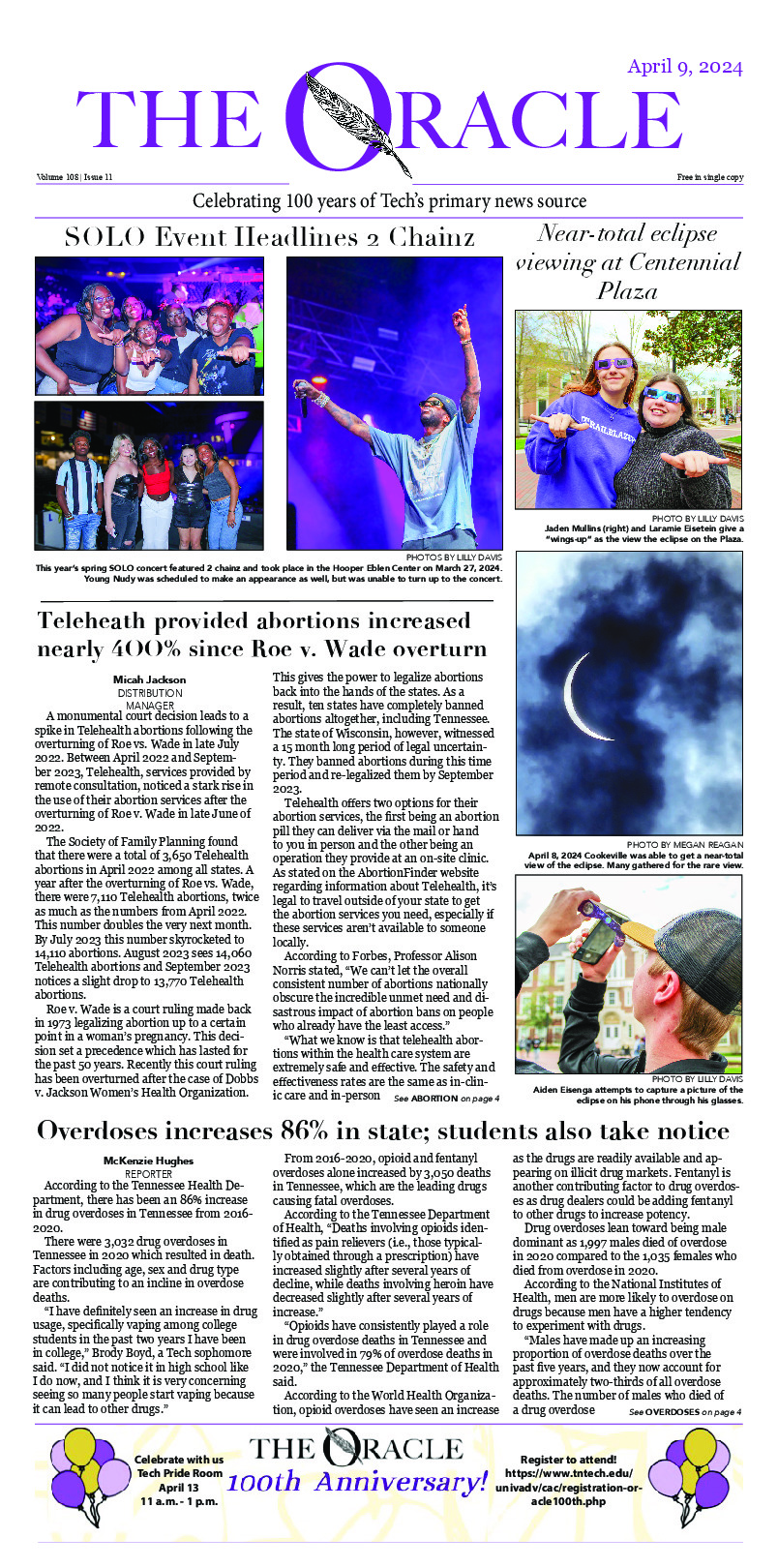Margaret Atwood, a celebrated author, traveled to Tennessee Tech to discuss her novel, “The Handmaid’s Tale,” human rights and how the two intermingle in a lecture, Tuesday, Nov. 3.
“Being a writer is a cross between being a gambler, an entrepreneur and a magician,” said Atwood. “Being a writer is also like being a 23-year-old country singer. Most have day jobs.”
Center Stage paid Atwood, this semester’s keynote speaker, $27,000 to speak about her personal experiences as a writer, her influences and the social issues highlighted in her work, such as feminism and political corruption.
[Editor’s Note: In regards to the Atwood lecture, Michael O’Rourke, an English professor at Tech, mistakenly sent an email to the entire English Department including the students, commenting on students’ inability to hold focus and the influence of extra credit on the attendance to the various author talks.]
“The Handmaid’s Tale” is dystopian fiction compared to modern stories such as “The Hunger Games” in that it takes place in a possible but unlikely future in a world worse than our own. It focuses on the female role in society. Atwood wrote about “handmaids,” women whose role was to reproduce with ruling class married males in a time of declining birth rates and who have a lower status than the men’s wives.
“If a woman’s place is in the home and they’re all out of the home running around like squirrels, how do you stuff them back in there?” Atwood asked. “Simple. Dial history back 100 years, take away their jobs, their money, and their recent rights to vote and speak freely.”
Atwood’s work has frequently been called prophetic. She said one question she’s asked most frequently is whether she considers the novel prophetic herself. The answer is no. Atwood believes there are too many shifting variables for any person to predict the future. However, she does believe a person can make a good attempt at an educated guess.
Prophetic or not, her award-winning works are admired by readers and critics alike. “The Handmaid’s Tale” has been adapted into a film, an opera production, a ballet performance and a graphic novel. Atwood collaborated the most on the film adaptation, leaving the other works to blossom into their own creations.
“When you (don’t collaborate) you’re saying, ‘Make this you’re thing,’” Atwood said. “I like to think of it as job creation, letting other artists take hold of it and run with it.”
Atwood continued the lecture by pointing out that her works aren’t fully hers, as no book is fully the writer’s. It also belongs to its readers, who will further shape its meaning and interoperations.
“The writer writes it and then lets go and waves bye to it at the train station as it takes off to its journey into others’ hands,” Atwood said.
Sarah Foy, an English major, said she’s been a huge fan of Atwood’s poetry since she first encountered her work in high school.
“I like it because it’s simple and modern” Foy said. “It’s on your level. She often writes about everyday life, like her dogs and what she sees outside her window. I think it’s enjoyable, because it’s so easy to follow.”


